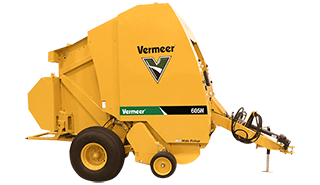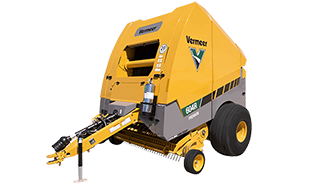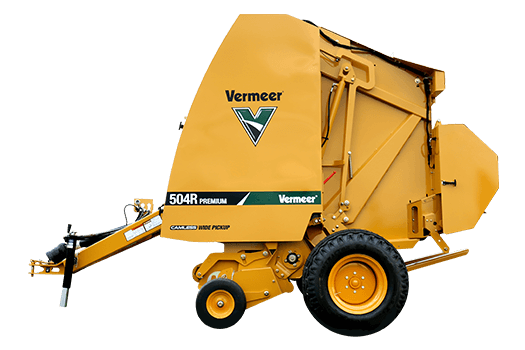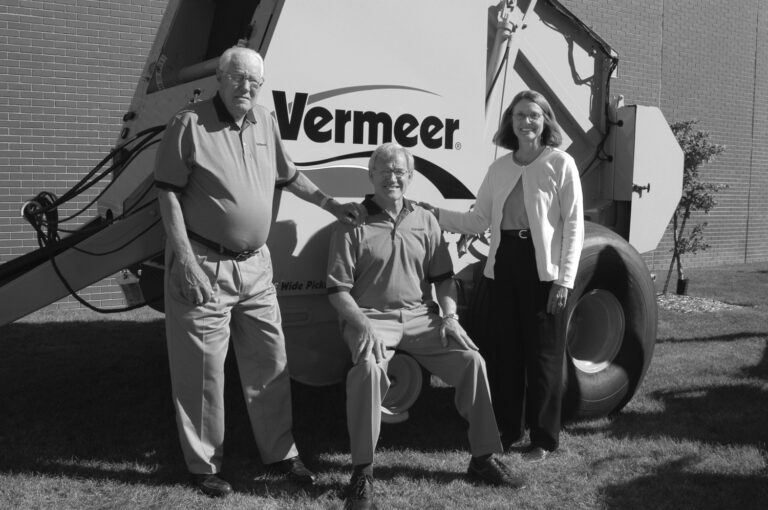
A Culture of Commitment: Vermeer History
March 2024
A lot can happen in 75 years. When fast-growing businesses look back over those decades, they often find things look quite different than when they started. That’s certainly true for Vermeer.
Even so, one team member with an impressive 50-year tenure says some important things haven’t changed throughout Vermeer history.
Russell Beyer was just 15 years old when Gary Vermeer invented the round baler in 1971 two years later, he was hired to help paint some of the original Vermeer buildings. Little did he know he was starting a career where he would build balers, provide parts and work directly with customers using Vermeer® Net. He stayed with Vermeer for 50 years, witnessing incredible innovations and advancements both in the forage business and in emerging markets like tree care, horizontal directional drilling and more.
What makes a team member stay for 50 years? Benefits and purpose are undoubtedly important, but Beyer says he stayed for the family- and customer-focused culture. This culture, originally set by Gary Vermeer, has been carried on throughout Vermeer history and into today.
A culture of caring
“Vermeer being a family-owned company is always what set us apart,” shared Beyer. “We’ve got some of the best people in the whole world.”
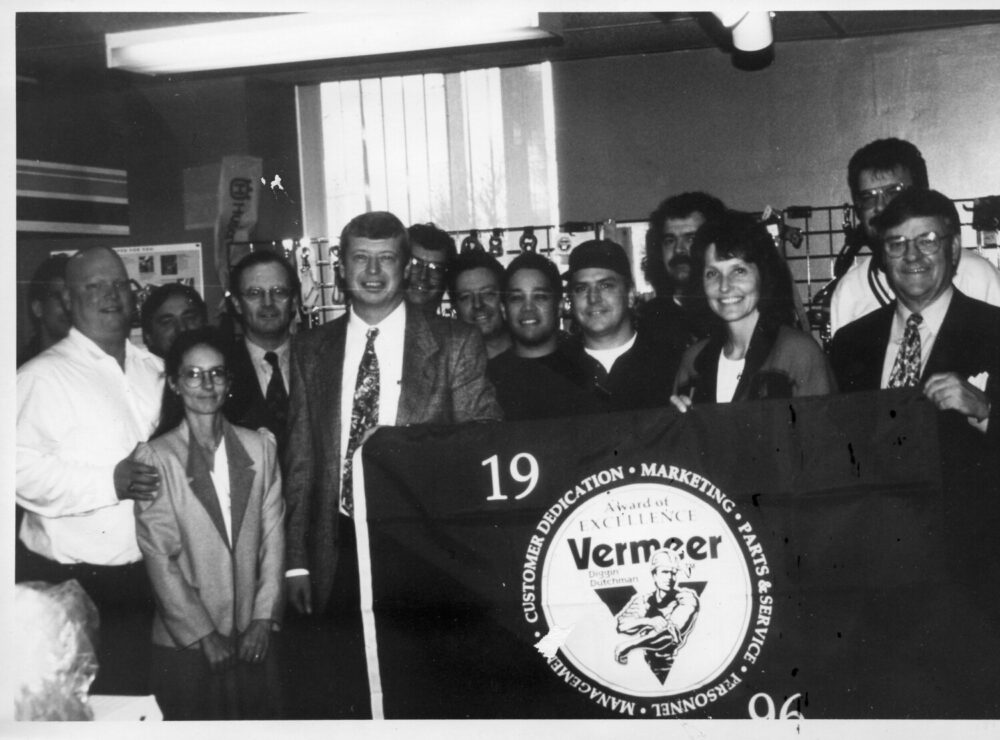
Beyer attributes the many longtime Vermeer team members, dealers and customers to the company’s commitment to people.
“You don’t get lifelong customers and career-long team members without them feeling cared for,” said Beyer. “But the only way to do that is by listening to them.”
Taking care of customers and dealers was a common responsibility in Beyer’s litany of roles throughout his career. From the parts world to eventually helping lead the Vermeer Net product line, friendships created over 50 years served as the fuel for Beyer to clock in each day.
“I don’t care how many years you go down the road,” added Beyer. “People will always look for good customer service.”
Customer service means taking care of problems, whatever they may be. Beyer remembers a customer from the early 90s with a model 1 round baler. The customer was passionately sharing some challenges he faced with that particular model.
With sweat forming on his brow, Beyer prepared himself to work through the conflict, only to be interrupted by the seemingly unhappy customer.
“He leaned over the counter, not even six inches from my face and he said ‘Yeah, I know it wasn’t your best model, but you know what? I’ll never buy another colored baler besides yellow because of how Vermeer took care of me.’”
A culture of listening to customers set the tone for what would become an extensive dealer network built on a commitment to customer satisfaction.
“We’ve got some longtime dealers who have been around as long as I have,” shared Beyer. “Relationships with both customers and dealers are the most rewarding part of my career with Vermeer.”
Finding solutions for every need
The culture of caring has always been rooted in Gary Vermeer’s commitment to finding and fixing customers’ issues.
It was Gary’s firsthand experience with labor challenges that ultimately led to the invention of the round baler. Beyer said Gary worked tirelessly to make equipment that reduced field labor.
“He was always looking for something to make work less labor intensive,” recalled Beyer. “I’m old enough to remember him coming into the parts center, needing parts for whatever he was working on that day. He would see a need and try to fill it and that’s the driving force behind Vermeer yet today.”
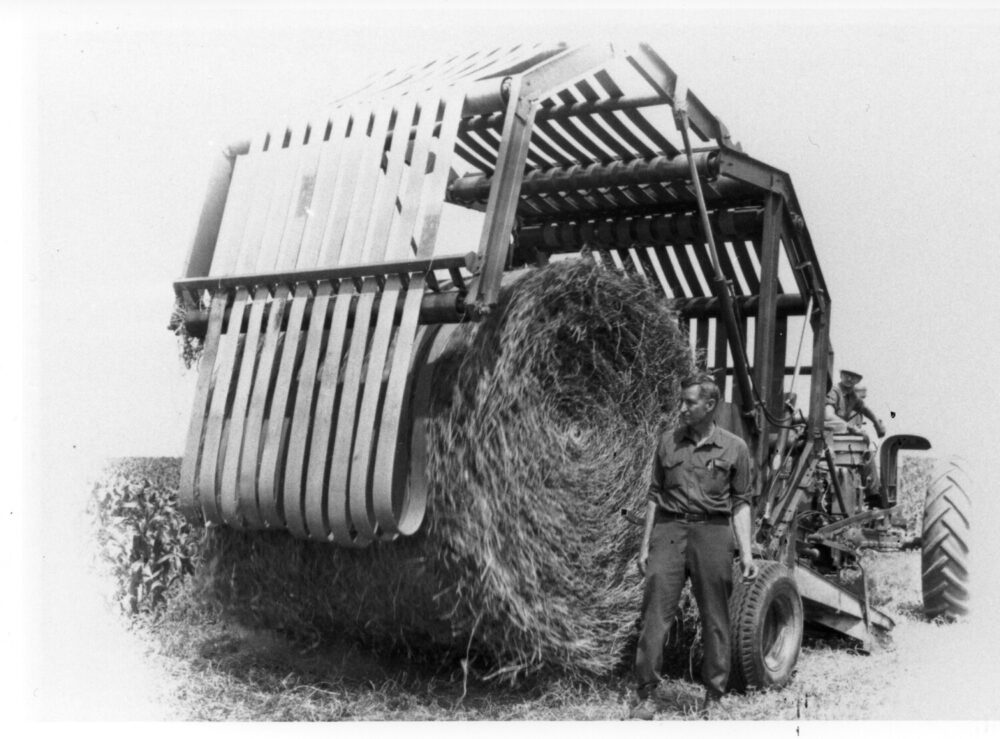
Mary Andringa, Vermeer chair emerita and second-generation family member, shares similar memories of her father.
“My dad would often talk about how there has to be a better way,” she said. “In fact, that was one of his key phrases and he applied it to a lot of different things.”
Gary, who was a farmer at heart, had the ability to look at opportunities instead of just problems. That’s why he and Arnie Mathes conceptualized the original round baler in chalk on the factory floor. The invention, which brought farmers (who would ultimately become dealers) from near and far to see the demonstration, revolutionized the hay industry. It also set the precedent of Vermeer leading the forage space for the next 50 years — eventually leading to the world’s first self-propelled round baler, the ZR5-1200 self-propelled baler.
“It all might have started with an idea in my grandfather’s head,” said Jason Andringa, Vermeer president and CEO and third-generation family member. “But he immediately was working with other people to bring ideas into reality. For decades, Vermeer has relied upon really smart, creative people who have seen the ways we listen to our customer’s problems and make improvements.”
Gary’s commitment to his company was only rivaled by his commitment to caring for its people.
And for Beyer, that commitment made the difference every day he clocked in for five decades.
“I’ve always said Vermeer is the best place in the world to work, without a doubt. They take care of their people, they take care of their employees, they allowed me to grow and be the best I could,” said Beyer. “And the same can be said for their dealers and customers.”

Vermeer Corporation reserves the right to make changes in engineering, design and specifications; add improvements; or discontinue manufacturing at any time without notice or obligation.
Equipment shown is for illustrative purposes only and may display optional accessories or components specific to their global region.
Please contact your local Vermeer dealer for more information on machine specifications.
Vermeer, the Vermeer logo and the Black, White, Green bale wrap color scheme (Vermeer Net) are trademarks of Vermeer Manufacturing Company in the U.S. and/or other countries.
© 2024 Vermeer Corporation. All Rights Reserved.

